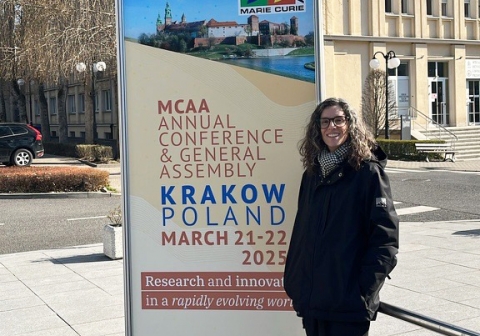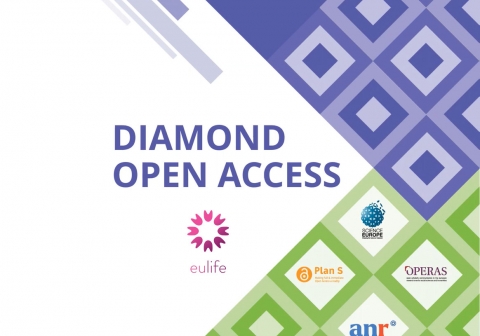EU-LIFE reacts to Plan S: Support to Open Access and 10 key recommendations
EU-LIFE reacts to Plan S
On 4 September 2018, Plan S was officially announced. Fourteen European national funders (cOAlition S) endorse the plan with the support of the European Commission and the European Research Council to achieve full and immediate Open Access (OA) to scientific publications. To reach this bold goal, the coalition commits to implement specific measures on new funded grants by 1 January 2020 following 10 principles[1].
After careful analysis and exchange with additional stakeholders, directors of the EU-LIFE alliance, representing 13 European research institutes of excellence in life sciences express views and formulate their recommendations on Plan S.
EU-LIFE supports OA to scholarly publications recognizing the rights to every scientist and citizen to access scientific literature (publishing as well as reading and re-using) as we believe science to be a public good for society.
OA implementation requires innovation and a well-thought plan engaging all different actors worldwide. Importantly, OA implementation must ensure high-level quality and fairness of the scientific publication system.
Ten Key Recommendations:
- We support that it is important to ensure that authors retain copyrights of their publications.
- All publications shall be published under open licenses fulfilling the requirements defined by the Berlin Declaration[2].
- The hybrid model, which has been a way for publishers to gain even more profit from the scientific enterprise, should be discouraged.
- Quality of the publication system and the key role of peer review should be at the heart of any policy aiming to improve the current publication system, including OA. The Plan S principles lack reference to the need of ensuring quality of the publication system. Science and humanities require quality journals and platforms (in processes and outputs), providing expert and transparent peer-review, as well as editing and proofing, necessary quality and research integrity checks. The required costs to ensure this need to be carefully considered.
- OA implementation requires thorough thinking and acting with all stakeholders, including publishing companies, learned societies, and researchers at different stages of their career. Funders should collaborate with researchers to set the criteria and requirements for the services that Open Access journals and platforms should provide. Some scientific journals have been key to scientific advancement over more than a century and have provided a fundamental service to the scientific community and the scientific community has collaborated with them (as authors, referees, writing reviews, etc.). Their positive contributions should be valued and considered for future developments towards OA.
- Plan S could harm learned societies and they will likely not be able to continue their activities, especially the smaller learned societies. Most are providing a valuable service to the community, often investing the revenues in junior researchers. Special attention should be paid to sustain their publishing role and contributions to the community.
- The potential implementation of Plan S following a pay-to-publish model may encourage the flourishing of predatory journals with aim to profit and low quality processes. Plan S should address this challenge specifically to avoid further spreading of predatory journals across several domains of research.
- The implementation of OA must ensure fair access to researchers and citizens in every part of the world and every type of institution, irrespective of financial capability. The current APC model presents a risk of unfairness by rewarding the well-funded research organizations or individual researchers. The implementation of the Diamond Open Access model (free of charge to both authors and readers) could be carefully considered as a fairer mechanism to reach OA. Alternatively, governments and public authorities should design and develop policies and regulations for the publishing industry (like for example for fuel and other products) to avoid astronomical inflated profits and drive the overall pricing down, while ensuring a high level quality system for scholarly publishing.
- A worldwide approach is essential to achieve genuine Open Access for the benefit of scientists and citizens. It is very dangerous for Europe without a timely coordination with other continents to forbid its researchers to publish in so-called high rank journals. This would damage the competitiveness of European researchers and challenge global collaborations.
- Changes in publishing practice must go hand-in-hand with changes in research evaluation. If funders continue to evaluate researchers based on publication venues (e.g. high impact factor publications) but at the same time push them to publish in OA mode, the system will collapse. Evaluation should follow the principles of the DORA declaration[3] and Leiden Manifesto[4].
EU-LIFE, encompassing over 4,000 researchers (including close to 400 principal investigators, and 1,400 PhD and postdoc fellows), is committed and willing to collaborate with all stakeholders to improve open access to all research data.
DOWNLOAD EU-LIFE STATEMENT HERE
[1] https://www.scienceeurope.org/coalition-s/
[2] https://www.fu-berlin.de/sites/open_access/weiteres/Veranstaltungen/oa_berlin/poster/Berlin-Declaration_Simone-Rieger_MPIWG.pdf
[3] https://sfdora.org/read/
[4] http://www.leidenmanifesto.org/



